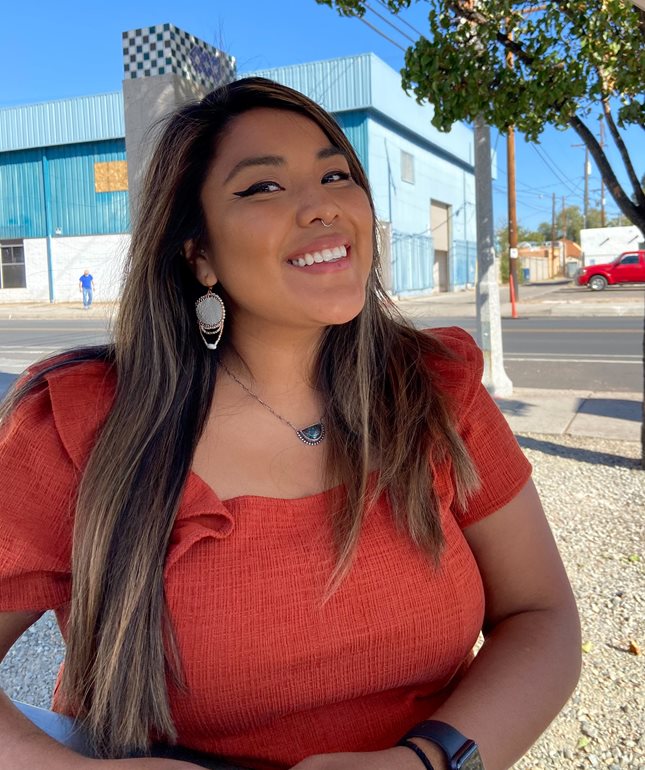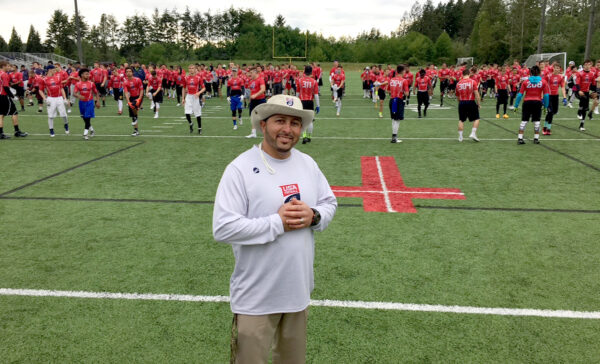
With remote operations at the University of Washington Bothell, Phoebe Keryte is finishing her final quarter back home in New Mexico where she’s helping her grandparents — and conducting fieldwork for a degree in Health Studies.
“I have to thank the pandemic for being able to come home,” she said.
An Indigenous Dine’ who grew up in Albuquerque and other parts of the state, Keryte has three tribal affiliations. She’s an enrolled member of the Navajo Nation with ties to the Santa Ana and Isleta pueblos.
Keryte left home in 2014 for an associate degree at Northwest Indian College on the Lummi Nation near Bellingham, Washington. It helped that she had a relative in the area. “Being in another tribal community felt like home.”
She later worked as a caregiver in Bellingham, found that she loved geriatric care and decided to advance her career with a UW bachelor’s degree.
The School of Nursing & Health Studies at UW Bothell was the best fit, she said.
Southwest by Northwest
Graduating this autumn, Keryte is finishing three courses remotely, including her fieldwork project. She is looking at the mental wellness and overall health of tribal elders, primarily at the Isleta Pueblo Assisted Living Facility where she works as a caregiver.
She also lives near her grandparents in the community of several thousand people about 15 miles south of Albuquerque. She visits them nearly every day.
“I only get to hang out with elders 24/7, but I enjoy it,” she said.
Keryte researches culturally based responses to the pandemic in tribal communities, how they are maintaining mental health and using resources.
“I love Indigenous research,” she said. “I think there’s more to research than Western methodologies we’ve learned at institutions. There are different frameworks for working in tribal communities.”
Keryte also plans to use social media to better connect families with the dozen residents of the facility where she works and to inform loved ones how the elders are coping with the pandemic.
Now and next
Tested weekly for the coronavirus, Keryte works weekend 12-hour overnight shifts, 7 p.m. to 7 a.m., helping on both the assisted living and memory care sides of the home.
As she looks forward to the graduation finish line, Keryte said she misses the Northwest but also feels ever grateful to those closest to her. “It has been a long journey. I feel I wouldn’t be here without the support of my family.”
Once she has her Health Studies degree, Keryte plans to work full time before she applies for a master’s degree program in nursing. She wants more experience to figure out what kind of nurse she wants to become to serve her people.
“I don’t think getting a degree is necessary for me, but rather it’s to support my people and represent them,” she said. “With all the bad things that have happened, my people are very resilient. We’ve overcome a lot of adversity.
“If I can obtain that higher education,” she said, “I want to give it back to them.”


